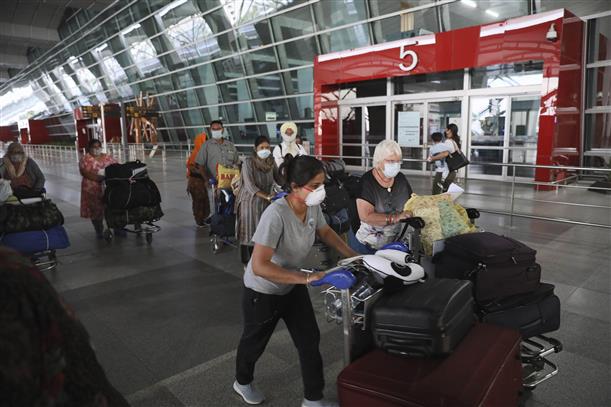
The big question: Can RT-PCR test detect Omicron variant of COVID?

The world is worried once again as the Omicron variant of SARS-CoV2 is being seen as a big threat after the World Health Organisation (WHO) assessed the global risk from the virus as “very high”.
Even though South African health authorities have conveyed to top medical experts in India that they are witnessing “very low hospitalisation” directly linked to Omicron, preliminary data shows that Omicron could have higher transmissibility, and greater ability to evade the immune response developed either through prior infection or through vaccines.
The Indian government has issued revised guidelines to be effective from December 1 wherein passengers travelling from or transiting through “at-risk” countries will have to undergo RT-PCR test on arrival in India. The passengers will also have to wait for the results before leaving the airport or taking a connecting flight.
But will RT-PCR test be able to tell the whole truth?
What WHO says
In the latest statement, the WHO has said that the Omicron variant can be detected effectively by the standard Polymerase Chain Reaction (PCR) tests. The organisation has further said that studies are currently being conducted on the Rapid Antigen Test (RAT) to check if it can detect the Omicron variant.
Also read: The West didn’t share its vaccines; is Omicron the result?
The WHO, in its statement, said, “The widely used PCR tests continue to detect infection, including infection with Omicron, as we have seen with other variants as well. Studies are ongoing to determine whether there is any impact on other types of tests, including rapid antigen detection tests.”
Why detection is problematic
Omicron, the newly-detected Covid variant, is the most mutated version of the virus found so far. In the last two years of the Covid-19 pandemic, the SARS-CoV-2 virus has mutated, resulting in genetic variation in the population of circulating viral strains. Molecular, antigen and serology tests – all get affected by viral mutations due to the inherent design differences of each test.
Scientists are still trying to collect more data about the variant and so there are various concerns floating around including those related to whether the variant can be detected in RT-PCR tests. The worry, scientists say, is that most RT-PCR tests in the country may not be able to distinguish between Omicron and other variants.
According to WHO, the Omicron variant falls under the S gene. The S gene encodes the spike glycoprotein of SARS-CoV-2, the virus causing COVID-19, and is also targeted to specifically detect the presence of SARS-CoV-2.
A complete RT-PCR report for COVID includes a test for ‘N’ , ‘S’ , ‘E’ and ‘ORF’ genes. Absence of the ‘S’ gene and other presence of other genes, is an indirect way of knowing that Omicron is present.
Public health experts want laboratories to conduct RT-PCR tests in whole for all three genes, particularly on international travellers, to help detect the absence of ‘S’ gene.
The RT-PCR tests, however, can only confirm whether the person has an infection or not.
They are not designed to determine which particular variant has infected the person. For that, a genome sequencing study has to be done.
Genome sequencing is a slow, complicated and expensive exercise. Therefore, not all infected samples are sent for genome sequencing. Normally, only about 2 to 5 per cent of the positive samples are sent for gene analysis.
Also read: COVID care: ‘Be patient with children, understand their emotions’
RT-PCR tests look for the presence of some specific identifiers in the genetic material (not the entire gene sequence) of the virus in the human body. Generally, two or more identifiers are searched to increase the chances of finding a match. If one of the identifiers has mutated, the other one can still return a positive result.
The problem is that Omicron is not the only variant that has mutations in the spike protein. Variants such as Alpha also have mutations and therefore could show similar behaviour in RT-PCR tests.
Since the prevalence of the Alpha variant in the Indian population has gone down significantly, RT-PCR can still be seen as a screening mechanism for the Omicron variant.
The Omicron variant was first detected in the southern part of Africa earlier this month and was declared as a variant of concern by the WHO. It has been designated to the most troubling category on COVID-19, along with the Delta variant, which led to the deadly second wave of the pandemic across the globe.

